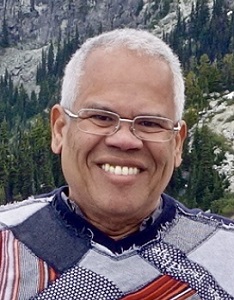Modality
on-line
Target Audience
This course is aimed at students, educators, trainers, and anyone interested in how the metaverse can improve the teaching-learning process.
Requirements for participants
Phones and tablets can be used to access the metaverse learning space. Still, a desk computer or laptop is recommended, as smaller devices may have limitations associated with memory and processing the elements of the virtual learning space.
Headphones and microphones are also recommended for better interaction in the metaverse.
A link to access a metaverse platform to explore a pre-configured educational environment will be made available shortly before the start of the course, together with instructions on configuration, primary navigation, familiarization with controls, and avatar creation.
Abstract
Distance education occurs when an online platform is used as a teaching and learning tool. The metaverse is one of the most effective tools today.
For this course, we understand metaverse as a multi-user online interactive digital environment where people interact with other users through avatars. These entities represent them and are controlled by them.
This course explores the potential of metaverse platforms as a teaching tool, providing a theoretical understanding and practical opportunities for participants to experiment with metaverse environments using their applications.
This will be the first time a course on the metaverse has been offered at HCII. We will discuss the metaverse, its basic concepts, and its applications in education. We will present some of the leading metaverse platforms available on the market and demonstrate in practice how to adapt and create a metaverse space for teaching activities. You will have the opportunity to explore a metaverse environment pre-configured for use in the teaching activity.
Benefits for attendees
The course will train attendants in the knowledge and use of metaverse environments in teaching activities. After the course, attendants will be able to identify and select the best platforms to use in their teaching activities, use the tools available in the metaverse environment, and apply exercises to stimulate student participation and attention in the metaverse environment.
At the end of the course, participants will have learned the basics of the metaverse environment, know how to choose an environment, and be able to conduct educational activities in it.
They will discuss how they can apply these concepts to their educational practices. Thus, it is hoped to provide participants with a practical understanding of how to use the metaverse as a teaching platform and how to customize environments and propose activities to meet the specific needs of their educational contexts.
Course Content
Part 1 - Introduction to Metaverses
- What is a metaverse? Definition and key concepts;
- Why are metaverses important for education?
Part 2 - Metaverse platforms
- Main platforms - Presentation of metaverse platforms used for teaching activities (Frame VR, Moot UP, Spatial.io, Virbela, Gather Town, etc);
Part 3 - Applying the use of Metaverse to Teaching (demonstration)
- Creating and Adapting Metaverse Educational Environments;
- Educational Activities in the Metaverse: recommendations for using Metaverses in teaching activities.
Part 4 - Practical Experience using the virtual environment (practical exercise)
- Exploring a Metaverse Educational Environment - Participants will enter a metaverse platform to explore a pre-configured educational environment.
Bio Sketch of Course instructor

Marcelo Soares is currently a visiting professor in the Graduate Program in Design at the Federal University of Maranhão, Brazil, and a volunteer professor in the Graduate Program in Design at the Federal University of Pernambuco, Brazil. He is a retired full professor in the Department of Design at the Federal University of Pernambuco, Brazil. Prof. Soares has served as a full professor at the School of Design, Hunan University, China, selected for this position under the Chinese Government's 1000 Talents Program, and as a full professor at SUSTech - Southern University of Science and Technology, China. Dr. Soares holds a Master's in Production Engineering (Ergonomics) from the Federal University of Rio de Janeiro, Brazil, and a Ph. D. at Loughborough University, UK. He was a postdoctoral fellow in the Department of Industrial Engineering and Management Systems at the University of Central Florida, USA. He has been a guest lecturer at the University of Guadalajara, Mexico, the University of Central Florida, USA, and the Technical University of Lisbon, Portugal. He has given short courses, lectures, workshops, and seminars in different countries: Argentina, Brazil, Colombia, China, India, Mexico, Portugal, Spain, the Netherlands, South Africa and the United States. Prof. Soares is a Certified Professional Ergonomist by the Brazilian Ergonomics Association (ABERGO), of which he was president for seven years. He has been a leader in ergonomics in Latin America and worldwide as a member of the Board of Directors of the International Ergonomics Association (IEA). Dr. Soares was president of the IEA 2012 (Triennial Congress of the International Ergonomics Association) held in Recife, Brazil. He has served on the Program Board of the HCII - Human-Computer Interaction Conference for more than 10 years. For three years, he also served as program chair of DUXU, the International Conference on Design, User Experience, and Usability.
Professor Soares is currently a member of the editorial boards of the journals Theoretical Issues in Ergonomics Science, Human Factors, and Ergonomics in Manufacturing and several journal publications in Brazil. He has published around 50 journal articles, more than 190 papers in conference proceedings, and 110 books and book chapters. Dr. Soares has carried out research and consultancy work for various companies in Brazil. He is the author of the book "Ergodesign for Product Design: a human-centered approach", published in three languages: English, Portuguese, and Chinese, and co-editor of the "Handbook of Human Factors and Ergonomics in Consumer Product Design" and the "Handbook of Usability and User Experience (UX)" published by CRC Press. His research, teaching, and consultancy activities focus on manufacturing, information and product ergonomics, usability, user experience, consumer product design, information ergonomics, and virtual reality and neuroscience applications to products and systems. He has also studied user emotions using products and techniques in real and virtual environments based on biofeedback (electroencephalography and infrared thermography). Prof. Marcelo Soares received the 2023 Fellow award from the International Ergonomics Association (IEA).

Layane Araújo is currently an Adjunct Professor in the Design program at the Federal University of Alagoas (UFAL), Brazil, and a member of the council and collegiate of the program. She participates in the Design Experimentation Laboratory (LED) within UFAL's Design program. Dr. Araújo serves as the Coordinating Professor of the Extension Project ‘Exploring Alagoas: An Immersive RPG Adventure to Promote Local Culture’ and as the Adjunct Coordinating Professor of the extension project Recreating ‘Futures: Workshops on Creation and Environmental Education for Sustainable Waste Management,’ both under UFAL's Vivências program. She also collaborates as a professor in the Scientific Initiation Projects of the Design program, including ‘Sustainable Innovation and Product Design to Enhance Waste Pickers and Reduce Environmental Impact’ and ‘Ogan Erê: Illustration and Design, Visual Experimentation with Elements of Afro-Amerindian Religions in the Territory of Alagoas.’
Dr. Araújo holds a master’s degree and a PhD in Design from the Federal University of Pernambuco (UFPE) in Brazil. She also completed specializations in higher education teaching at the Signorelli International College in Rio de Janeiro and Neuroscience at IDE College of Pernambuco. Additionally, she holds a bachelor's degree in design from the Federal University of Alagoas (UFAL), which is also in Brazil.
Dr. Araújo has previously taught at Centro Universitário Maurício de Nassau, Maceió, Brazil, in the Computer Science, Information Systems, Graphic Design, and Pedagogy programs. Her teaching areas included UX/UI Design, Web Coding, Software Architecture, Neuroscience and Education, Active Methodologies and Gamification, Game Development, Storytelling, Project Management, and Team Management. At the same institution, she also coordinated a Scientific Initiation Project titled ‘Exploring Learning Spaces in the Metaverse: A Study on Technology, Design, and Ergonomics’ and was a member of the Ethics Committee. Her areas of interest are Digital Artifact Design, UX/UI Design, Product Design, Game Design, Service Design, Ergonomics, Gamification for Learning, Metaverse Platforms, and Project Methodologies.


